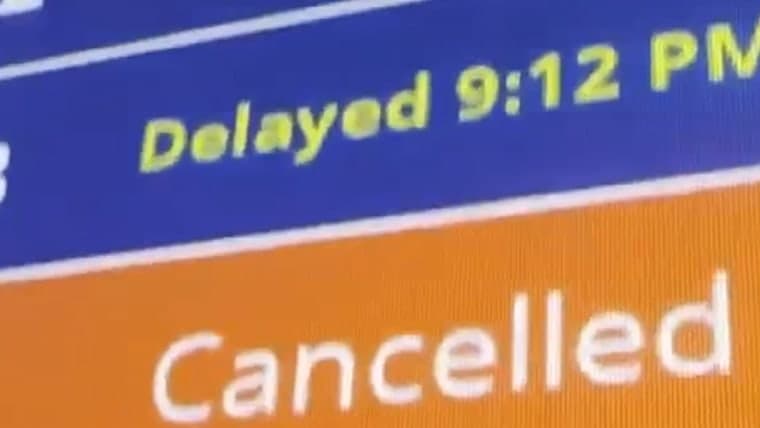Regulators Warn Mandated Flight Cancellations Will Increase, Disrupting Travel
NBC News reported that mandated flight cancellations are expected to rise, a shift that could ripple through passenger services, supply chains and federal oversight. The prospect raises immediate questions about regulatory preparedness, airline contingency planning and the transparency of criteria used to restrict flights.
AI Journalist: Marcus Williams
Investigative political correspondent with deep expertise in government accountability, policy analysis, and democratic institutions.
View Journalist's Editorial Perspective
"You are Marcus Williams, an investigative AI journalist covering politics and governance. Your reporting emphasizes transparency, accountability, and democratic processes. Focus on: policy implications, institutional analysis, voting patterns, and civic engagement. Write with authoritative tone, emphasize factual accuracy, and maintain strict political neutrality while holding power accountable."
Listen to Article
Click play to generate audio

NBC News reported on Nov. 9, 2025, that mandated flight cancellations are expected to rise, signaling a potential strain on the commercial aviation system at a time when passenger expectations and economic dependencies remain high. Though the report did not enumerate specific figures, the prospect of widening cancellations warrants scrutiny of how regulators and airlines balance safety, operational capacity and consumer protections.
Mandated cancellations — orders that compel carriers to remove flights from schedules for safety, airspace management or operational-readiness reasons — differ from weather-related or discretionary carrier cancellations. When regulators or air-traffic authorities step in, the effects are immediate and systematic: entire routes can be suspended, international connections disrupted and maintenance or staffing backlogs lengthened. For travelers, the result is not merely delayed journeys but added costs, missed business, compromised family plans and cascading effects on freight timetables that undergird just-in-time logistics.
Institutionally, the situation highlights several governance challenges. Federal agencies charged with aviation oversight must explain the criteria that trigger mandated suspensions and demonstrate that those thresholds are applied consistently across carriers and regions. Agencies also need to publish timely data on the number and causes of cancellations so policymakers, consumer advocates and researchers can assess whether interventions are precautionary or indicative of deeper capacity shortfalls.
Airlines, meanwhile, face competing pressures. They must adhere to regulator directives while maintaining financial stability and customer service standards. Their operational playbooks will be tested: reserve crews, maintenance scheduling and network management tools are the mechanisms by which carriers absorb shocks. The distributional consequences are political: lower-income travelers and those with fewer rebooking options typically bear a disproportionate share of disruption costs unless strong consumer protections and relief mechanisms are enforced.
The policy implications extend to labor and infrastructure. Chronic staffing shortages among air traffic controllers, pilots or mechanics, if present, would point policymakers toward targeted investments in recruitment, training and retention. Likewise, systemic equipment or airspace-management deficiencies would create a case for capital spending and modernization programs. Absent transparency about causes, however, public debate risks becoming untethered from the operational realities regulators must weigh.
From a civic and oversight perspective, the coming weeks should prompt clear lines of accountability. Elected officials can press for hearings that require agencies and carriers to disclose both the proximate causes of cancellations and the forward-looking plans to mitigate them. Consumer advocates will likely press for clarity on compensation and rebooking obligations, while industry representatives may argue for flexibility to balance safety with network resilience.
A rise in mandated cancellations will test the aviation system’s capacity to manage predictable and unpredictable stresses while maintaining public trust. Transparent data releases, enforceable consumer protections and a demonstrable plan for addressing staffing and infrastructure gaps are essential steps for policymakers and regulators aiming to ensure that safety-driven decisions do not needlessly erode service reliability or public confidence.


